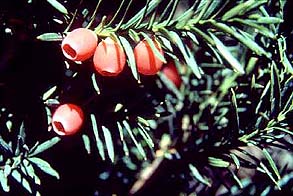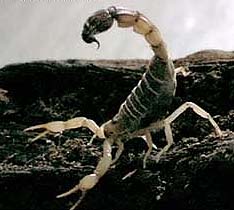PLANTS AND ANIMAL TOXIN
TOXIN - these are poisonous substance that are produced by living organisms and capable of causing diseases.
PLANTS TOXIN
Common monkshood, Friar's cap, Garden Wolfsbane
- Alkaloids contained in the plant are responsible for its poisonous effect. Their highest concentration, from 0.2 to 3%, is in young tubers.The main alkaloid is aconitine. During blooming the roots contain a minor amount of aconitine but it grows larger and reaches its maximum in the winter. That is why only young tubers gathered in the autumn are used as a drug. Since tubers easily disintegrate, they should be stored in a dark place.
Aconitine is one of the strongest plant poisons. At first, it acts as a stimulant but, after that, it paralyzes the nervous system. Doses of 2-5 mg can kill an adult. The symptoms of poisoning are oral paresthesias, abundant salivation, nausea, vomiting and diarrhea. The skin becomes cool, the limbs become insensitive and the pulse accelerates. Death results from respiratory failure and cardiac arrest. Children may get poisoned if they hold tubers in their hands for a long time.Yawus (Taxus baccata)
- Symptoms include nausea and vomiting, increased salivation, stomachache, diarrhea, sleepiness, shortage of breath, trembling, spasms, malfunction of the cardiovascular system which leads to collapse and death. Yew’s toxins do not have any application in medicine because of the great danger of poisoning.
Tobacco (Nicotiana Tobacum)
1. Carbon monoxide–it decreases the oxygen saturation of blood.
2. Irritating substances–they cause cough and wheezing.3. Dangerous carcinogenic substances.
ANIMAL TOXIN
Black Widow (Latrodectus)
- The black widow is not an aggressive spider. However, bites are not uncommon. The venom contains neurotoxins and soon after the bite an immediate strong pain is felt. The affected limb starts sweating. Systemic symptoms may develop if the bite is not treated immediately. These include nausea, vomiting, abdominal pain, pyrexia (fever) and in severe cases paralysis may occur.
Scorpion (Scorpiones)
- All species of scorpions are poisonous for their preys (mostly insects, for which they are always deadly) but a very small number of the over 1050 known species can be dangerous to humans. The scorpion’s venom is comprised of a variety of compounds, most of which have not been investigated. The venom from a single scorpion may include several neurotoxins, histamine, serotonin, enzymes, enzyme inhibitors, and other unidentified compounds. Each neurotoxin is believed to target specific kind of animals.
Poison Dart Frog (Dendrobates, Phyllobates)
- Most amphibian skin toxins are complex nitrogenous compounds that affect the victim in different ways. Some can cause local irritation only, others provoke hallucinations or act as vasoconstrictors, ones that contract blood vessels.
REFERENCES: http://library.thinkquest.org/C007974/4cla.htm






